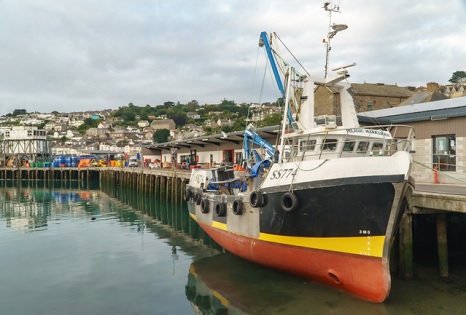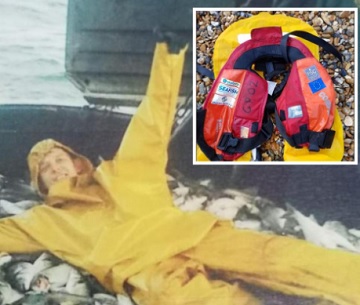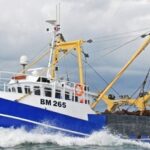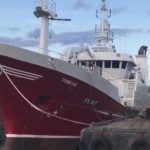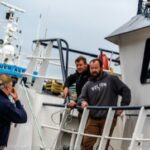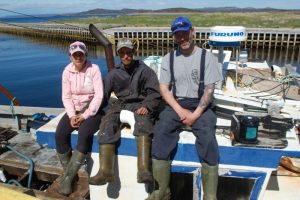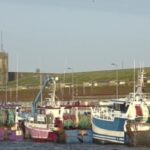Category Archives: International
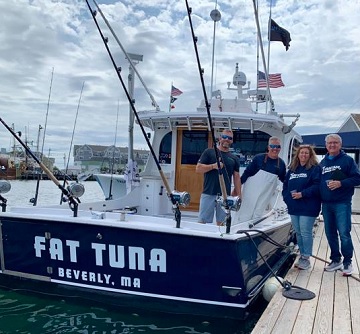
Fans still flock as end of 11th ‘Wicked Tuna’ season nears
“Wicked Tuna,” based in Gloucester, continues to capture the hearts and imaginations of viewers, who continue to flock to America’s oldest seaport to catch a glimpse of one of the show’s boats or its captain and crew. Cathy and Jeff Dyer of Knoxville, Tennessee, are among the recent visitors in search of all things “Wicked Tuna.” “That was one of our missions on our recent trip to New England. Our first impression as we drove through the city was it was much bigger than we expected,” said Cathy Dyer. “When we saw the Fishermen’s Memorial driving into town, we knew we were in the presence of the ‘Wicked Tuna.’ Our visit was very memorable and eventful.” >click to read< 10:06
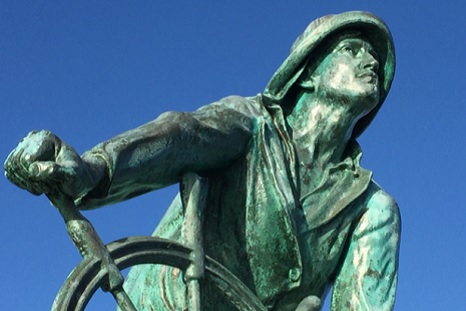
NOAA – A Failed Agency
The Magnuson Act became the law of the land in 1977. Seven years later, the 200-mile limit between Canada and the United States was decided at the world court in the Hague, Netherlands. Both had good intentions, however both failed. Magnuson was supposed to keep fish stocks at a sustainable level and keep maritime communities, like Gloucester prosperous. It made sense. Plenty of fish meant plenty of fishing, processing and a strong waterfront economy. After NOAA Magnuson was signed into law and kicked out the foreign vessels, they contradicted their own intentions of “overfishing” and built up the American fleet by offering government-backed low interest loans. This set off a frenzy of boat building at a time when fish stocks were plentiful. The fleet doubled in size in less than a decade. This offset the gains made from keeping foreign vessels out. Well, it backfired. While we like to think that the foreign fleets raped our fish stocks, it was really NOAA’s’ misguided encouragement and failed policies. “Go get’em boys, it’s all ours now” was their signal to fishermen. >click to continue<, By Sam Parisi. Gloucester, Mass. 18:32

Warning of ‘environmental devastation’ of offshore wind farms
A campaign group has accused the offshore wind industry of creating “environmental devastation”, and claimed that the impact will become greater as more projects are developed. Scotland Against Spin took issue with a Scottish Government survey which found that a majority of people approve of offshore wind farms. Those living in coastal areas cited the economic benefits of offshore, according to the study, while the effects on tourism “could be minimal”. Industry body Scottish Renewables said the findings indicated that most members of the public recognise the social and economic importance of the offshore wind sector. However, Scotland Against Spin chairman Graham Lang maintained that offshore developments are posing a threat to seabirds, including puffins and kittiwakes, and to fish species such as haddock, cod and mackerel. >click to read< 20:19
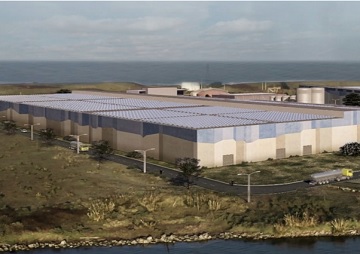
Nordic Aquafarms Final Environmental Impact Report Available for Public Review
The County of Humboldt has prepared a Final Environmental Impact Report for the Nordic Aquafarms California, LLC – Coastal Development Permit and Special Permit application (Case Number PLN-2020-16698), and the report is now available on the county’s website. The Planning Commission will be considering the Coastal Development Permit and Special Permit at a Public Hearing on July 28 beginning at 6 pm in the Board of Supervisors Chambers. >click to read< 12:00

Dungeness crab fishery to close early after slow start
The commercial Dungeness crab fishery in Southeast Alaska will close early this summer because the start of the season has been so slow. In recent years, Dungeness crabbing has been pretty great for commercial fishermen in Southeast. The harvests and prices have been above average, sometimes way above. Last year, saw the second highest harvest on record and the highest price ever paid. The summer season was worth $13 million. But this year looks different. The season opened on June 15. About 200 fishermen registered in the region and they’ve reported poor fishing. “I’ve heard generally it’s slow,” said Joe Stratman with the Alaska Department of Fish and Game. “I’ve heard generally it’s slow throughout the region.” It’s only the third time in the last 20 years that the season has been shortened. >click to read< 10:14
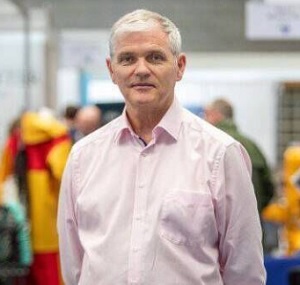
Rising cost of fuel adds to pressure on fishing industry
The fishing industry is facing a perfect storm of circumstances that must be addressed urgently by the Government to avoid permanent damage to the sector, according to representative groups. The rising cost of fuel is compounding the already significant strain on the industry caused by Brexit and the pandemic, fishers say. According to Aodh O’Donnell, chief executive of the Irish Fish Producers Organisation, said many boats can’t run profitably in the current circumstances. “We are looking at fuel costing €1.30 per litre or more, it has effectively doubled in cost in less than a year.” Mr O’Donnell said French and Spanish fishermen were being supported by their governments and this was leaving Irish boats at a disadvantage. >click to read< 08:54
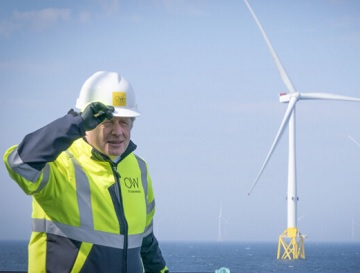
Your favourite takeaway could set you back following green-energy expansion
Fish and chip fans fear the future of their favourite takeaway, as widening offshore wind farms will soon be constructed in precious fishing territory. Fishermen across the country have criticised the Prime Minister’s plans to increase the number of wind turbines in the sea, meaning over half of their legal fishing territory could be lost by 2050. A damning report outlined in the Spatial Squeeze in Fisheries report indicated how 56 percent of Scottish waters could become prohibited for fishing boats. The Prime Minister’s plans would see fish go uncaught, leaving restaurants no choice but to rely on importing. One chip shop in Kent recently shut down as its owner refused to charge £14 per person for a portion of Britain’s most famous dish. >click to read< 15:27
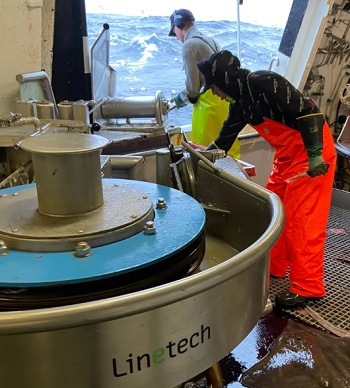
World’s First All-Electric Longline Handling System
F/V Kap Farvel is the first fishing boat in the world that started using the all-electric longline handling system from Mørenot. Already after one week of testing followed by seven weeks of fishing, the feedback from the skipper and crew is unanimous: This is the longline system of the future! For several years, Mørenot has been challenging the idea of a traditional hydraulic longline system with its first fully electric longline system for both deep sea and coastal fisheries. Seeing the opportunity of a high-tech electrical longline system, Mørenot has heavily invested in innovation that enables fishers to effortlessly achieve higher efficiency, lower energy consumption, and better working conditions. Mørenot’s VP Alf Rune Ose explains how their engineers in Iceland developed the complete mechanical system with an updated LineTech longline control system to revolutionize the fishing industry. Mørenot has designed a system that is suitable for fishing operations worldwide. photos, >click to read< 21:16
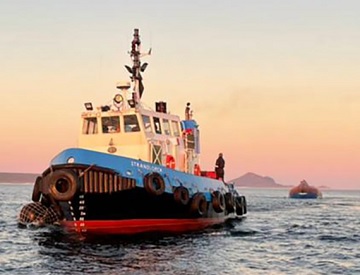
Salvage operation under way after fishing vessel capsizes
Early on Sunday morning, the Saldanha Bay-registered vessel, the Restless Wave, capsized eight nautical miles south of Cape Point. It happened quickly, with the National Sea Rescue Initiative (NSRI) saying: “It is believed that the vessel capsized in under a minute.” The good news is that none of the 12 crew on board was injured and all were rescued by nearby boats. The bad news was that the vessel, with a fuel capacity of 45,000 litres, was stranded upside down, threatening marine life in a biodiverse and protected area. These initial fears are subsiding as the salvage operation comes to an end. >click to read< 15:32
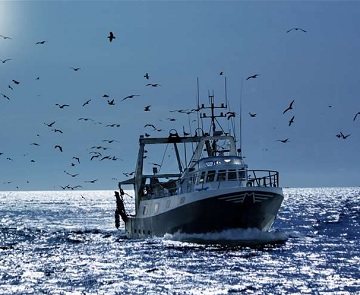
Fishing industry at risk of being ‘put to the sword’ by offshore renewables and MPA’s
The fishing fleet is facing a “truly frightening” future with the prospect of more than half of Scottish waters being off-limits by 2050, a new study has warned. The industry is at risk of being “put to the sword” because of offshore renewable energy developments and the expansion of enhanced marine protected areas, according to the Scottish Fishermen’s Federation (SFF) and National Federation of Fishermen’s Organisations (NFFO). Their report, Spatial Squeeze in Fisheries, produced by the ABPmer consultancy, is described as the first attempt to assess the cumulative impact on commercial fishing of “hugely increased competition for space in the marine environment”. >click to read< 07:55
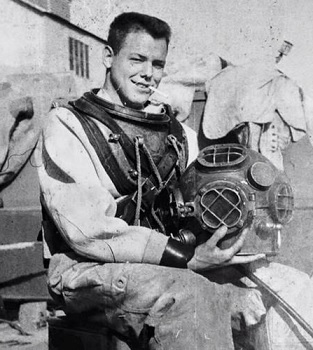
Commercial Fisherman/Businessman Jared “Jerry” Trussler of New Zealand
Jared “Jerry” Trussler was born on August 21st, 1938 to Fern and Arthur Trussler in Paso Robles, California and passed away peacefully at his home in Kerikeri, New Zealand on June 24th, 2022. He grew up in San Luis Obispo and Santa Clara Counties and graduated from San Luis Obispo High School with the class of 1956. In 1957, Jerry went to Alaska to work on a commercial fishing boat in the Bering Sea, which he described as the most pivotal point in his career, and he continued to return to Alaska as a commercial fisherman for over 30 years. Jerry also became a commercial abalone diver and obtained his pilot instructor’s license. In 1965, Jerry started a welding company focused on building steel commercial fishing vessels, but later moved on to manufacturing steel water tanks up to 10 million gallons in size for municipalities all over California. >click to read< 21:45
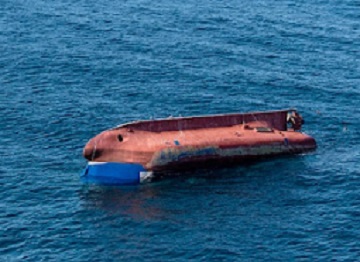
Salvage operation for capsized fishing vessel off Cape Point
The 24m Restless Wave capsized in the early hours on Sunday, prompting the successful rescue of all 12 crew who were uninjured in the accident, which is being investigated. However, the upturned vessel is adrift close to Cape Point, raising concern about a possible pollution threat. On Tuesday Samsa said: “Earlier today salvors and port officials met to formalise the process to tow the vessel to Cape Town. A separate vessel is standing by to recover the fishing gear once the Restless Wave is connected and clear of the area.” The vessel is a purse seine fishing vessel built by local boat builder Tallie Marine for the local fishing industry. >click to read< 09:14
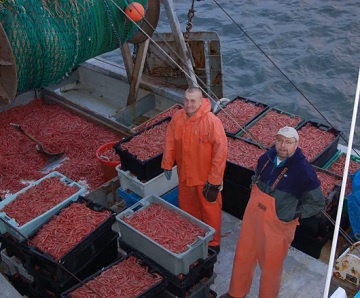
How warming ocean temperatures wiped out Maine’s shrimp industry
Since 2014 fishing for northern shrimp has been banned in the United States. The stock in our area has decreased to the point where they are not reproducing. This is not due to overfishing; it is directly due to the temperature of the water. They have simply moved north to colder Canadian waters. Back in 2007, when there was a robust northern shrimp fishery in the Gulf of Maine, scientists were looking for net modifications that would catch shrimp but not have any bycatch of finfish. Since shrimp fisheries throughout the world have some of the highest bycatch of any fishery, this was a priority worldwide. At that time the Northeast Consortium at the University of New Hampshire helped fund research by Dr. Pingguo. He and David Goethel developed a trawl net, named “The Topless Trawl,” that drastically reduced bycatch in the northern shrimp fishery. >click to read< 10:21
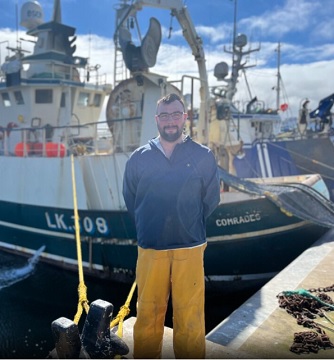
Young fishing crews call for urgent government help to tackle rising fuel costs
Fuel is at almost three times the price it was last year, and Shetland Fishermen’s Association (SFA) has warned the whitefish sector is in particular danger of failing. F/V Defiant skipper Robbie Jamieson, 25, said the cost of fuel “has become crippling”. He bought the boat last year with the rest of his shareholder crew, all of whom are under the age of 30. Mr Jamieson said along with the rising cost of fuel, ongoing issues with cod quotas “adds to the problem”. F/V Comrades skipper Ben Irvine, 24, agreed – saying the cost of fuel “has become a real problem” for him and his crew. “As a young crew, we have debts to pay off from purchasing the vessel last year. >click to read< 08:19
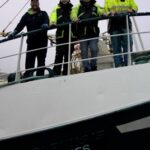 Young skippers and crew take over two whitefish trawlers – Skipper Ben Irvine, Owen Dougan, Gordon Smith, Louis Polson, and LHD, have bought the F/V Sedulous from John Wishart. She has been renamed F/V Comrades. Meanwhile., skipper Robbie Jamieson, Richard Whelan, James Shearer, Ross Sutherland, Tom Jamieson, and Magnus Polson, have bought the F/V Defiant from Gordon Irvine. >click to read<
Young skippers and crew take over two whitefish trawlers – Skipper Ben Irvine, Owen Dougan, Gordon Smith, Louis Polson, and LHD, have bought the F/V Sedulous from John Wishart. She has been renamed F/V Comrades. Meanwhile., skipper Robbie Jamieson, Richard Whelan, James Shearer, Ross Sutherland, Tom Jamieson, and Magnus Polson, have bought the F/V Defiant from Gordon Irvine. >click to read<
Sunny Monday in Newlyn.
Sardine boat, Pelagic Marksman upon the hard for a pre-season hull check… Lots of great phots! >click to review< 16:07
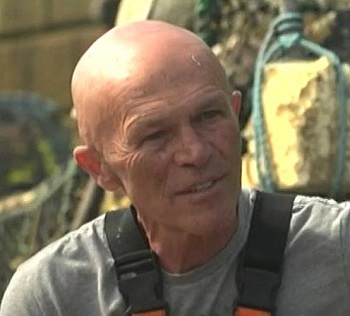
Hartlepool fishermen fear for future after crab deaths
Mass wash-ups were first reported in October with the government saying a natural algal bloom was to blame. Campaigners and fishermen disputed that and instead cited the dumping of dredged materials from the River Tees, which was “ruled out” by officials. Fisherman Paul Widdowfield, from Hartlepool, said he had caught “nothing at all” since October. Crab fisherman Stan Rennie said his family had fished the waters off Hartlepool for hundreds of years but he feared that would be “lost” with him. “We don’t know how the eco-system can come back,” Mr Rennie said. >click to read< 9:34
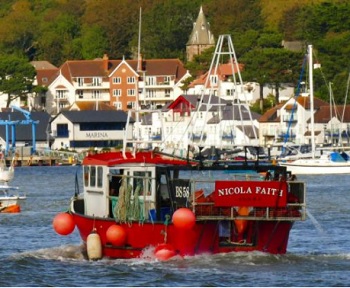
F/V Nicola Faith: The deadly mistakes that led to the boat capsizing and killing three men
A report into the death of three men who died in the Nicola Faith sinking tragedy has been published. The deaths sent shockwaves through the fishing industry after the boat capsized and sank. Carl McGrath, 34, Ross Ballantine, 39, and Alan Minard, 20, lost their lives on board the vessel after it left Conwy Harbour on January 27 last year. It later sunk 1.9 miles north of Rhos-on-Sea, near Colwyn Bay. The 58-page report, written by the Marine Accident Investigation Branch (MAIB) highlights a series of operational failings as Mr McGrath sought extra productivity in his bid to buy the boat outright. Here, below, we set out a timeline of events that led to the tragedy. It covers in detail the day of the boat’s disappearance and the subsequent search operation. >click to read< 12:40
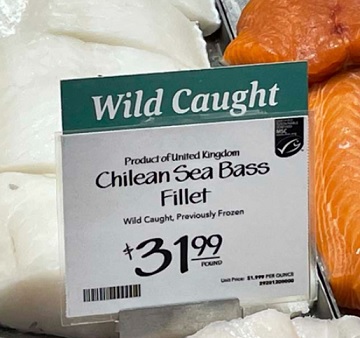
Fishing feud at end of the world split US and Britain over Russia
It’s one of the world’s highest-fetching wild-caught fish, sold for $32 a pound at Whole Foods and served up as meaty fillets on the menus of upscale eateries across the US. But Russia’s obstruction of longstanding conservation efforts, resulting in a unilateral rejection of catch limits for the Chilean sea bass in a protected region near Antarctica, has triggered a fish fight at the bottom of the world, one dividing longtime allies, the US and UK governments. >click to read< 11:16
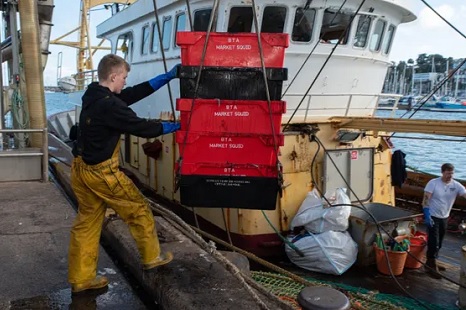
Rising diesel prices push UK’s fishing industry to the brink
Trawlers and commercial fishers are now struggling under the weight of price rises that mean in many cases tens of thousands of pounds extra in diesel for a fishing trip leading to take-home pay that is below the minimum wage. The biggest trawler in Brixham, the Julie of Ladram, returned to harbour after seven days at sea earlier this month, and came close to making a loss. The captain, Sean Beck, took home just £440 for a week’s work – the equivalent of £2.60 an hour for being responsible for the ship and crew 24 hours a day. “It’s a stressful time for my family. And it’s stressful at sea – fishing’s not always great. As a skipper it’s a big responsibility to make the boat pay and make sure everybody gets a wage.”>click to read< 09:42
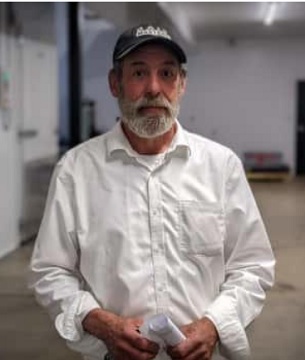
Concerns on P.E.I. about the risk foreign bait might pose to ecosystem
In March, DFO put a moratorium on commercial fishing for herring in the Gulf of St. Lawrence and mackerel across the East Coast, saying urgent action is required to allow those fish stocks to recover. That moratorium led to fears of a shortage of bait for use in the lucrative Maritime lobster fishery. Mark Prevost, the co-owner of the Bait Masters alternative bait company in Nine Mile Creek, P.E.I., appeared before a federal fisheries committee earlier this week. He is calling on the federal government to regulate the kinds of fish being used for bait. >click to read< 15:36
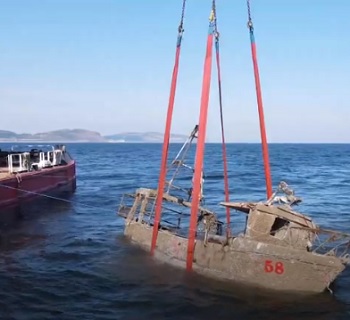
F/V Nicola Faith: Fisherman’s ‘harsh working conditions’ revealed in investigation
Carl McGrath, 34, Ross Ballantine, 39, and Alan Minard, 20, were on board the Nicola Faith when it left Conwy Harbour on January 27, 2021. It capsized and sank 1.9 miles north of Rhos-on-Sea. A report by the Marine Accident Investigation Branch found skipper Carl McGrath pushed his crew harder than most in search of greater productivity. Aged 34, Mr McGrath had been the boat’s skipper for some three years. Previously a builder and steel fabricator, he had had no fishing experience prior to skippering the Nicola Faith. Despite this, he had completed all mandatory fishing industry safety training courses. Neither had Ross Ballantine, 39, any prior experience of fishing before taking a job on the Nicola Faith, on which he had been working for about eight months. The youngest crew member was Alan Minard, 20, who had been crewing on Nicola Faith for just two weeks. >click to read< 14:00
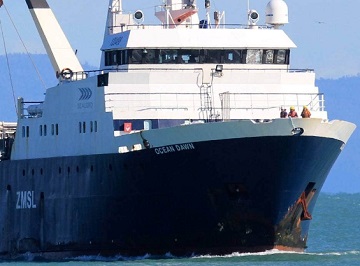
Coroner to probe death of fisherman on Sealord vessel
A fisherman has died at sea on his first trip aboard the Sealord trawler Ocean Dawn. Nelson-based Sealord chief executive Doug Paulin said the 47-year-old man was found unresponsive outside his cabin in the early hours of Tuesday on the 64m factory trawler. Crew tried to resuscitate him but were unable to. Paulin said he could not comment on the cause of the man’s death as that would be determined by a coroner’s investigation. >click to read< 09:12
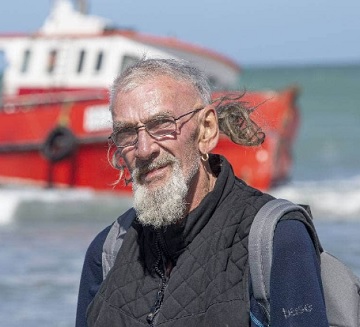
A skipper named ‘Crazy Horse’, a ‘dicky’ autopilot and a sailing trip that foundered on a beach
After hours of sailing a 14m fishing vessel on “an extremely erratic” course up the coast towards Christchurch, doubling back and then turning around again to head in the same direction closer to the shore, skipper David “Crazy Horse” Atkinson was lost. It was 9pm, he was not sure where he was, and he only had rudimentary knowledge of how to use the boat’s navigational equipment. His crew aboard the trawler, the F/V Debbie Jane, consisted of a 41-year-old woman and a 73-year-old retired school teacher who was living with him – neither of whom had any commercial fishing experience. >click to read< 08:03
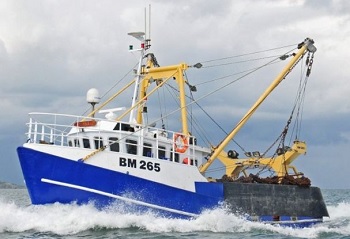
F/V Johanna C: Life raft failure blamed after fishermen deaths
Two fishermen died after their trawler capsized and their life raft failed to inflate, a report has said. Investigators said the failure of the life raft “impacted” the chances of two men surviving after they were thrown into the water when the Joanna C sank in November 2020. One of the men in the water died, but the other was later rescued. A third crew member drowned after being trapped in the sinking boat, the Marine Accident Investigation Branch said. MAIB chief inspector Andrew Moll said: “Unfortunately, Joanna C’s ‘float-free’ life raft arrangements did not work as expected. >click to read< 10:38
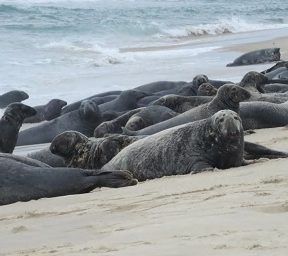
Grey seals eat into another fish population in the Gulf of St. Lawrence
Grey seals are eating into another fish species in the southern Gulf of St. Lawrence, driving a serious decline in the abundance of yellowtail flounder, according to a new report from Fisheries and Oceans Canada (DFO). Federal scientists assessed the flatfish species in the southern gulf over the past 25 years up to 2020 and projected the population to 2030. The results are stark. The number of yellowtail flounder six-years and older is believed to have declined by 95 per cent since the mid-1980s. There is a 100 per cent probability the population will remain in the critical zone where serious harm occurs whatever the level of commercial fishing, the report says. >click to read< 08:39
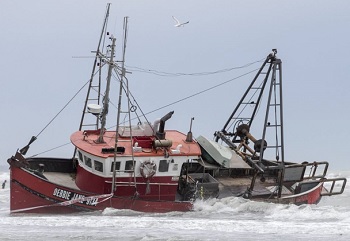
Trawler skipper who got lost off Christchurch admits safety breaches
Shortly before a trawler skipper lost his bearings in gathering darkness off the Christchurch coast, one of his crew had rolled him a cannabis joint. Maritime New Zealand’s summary of facts does not say whether the skipper, 67-year-old David Anderson, actually smoked the joint, but the trawler ran aground on Waimairi Beach a few hours later. The F/V Debbie Jane’s disastrous trip from Akaroa to Nelson in December 2019 was detailed in the Christchurch District Court, when Anderson admitted two charges. >click to read< 07:48
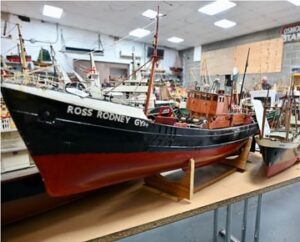
Grimsby man whose house was full of model boats sells 400 of them at auction
Pete Dixon, 75, who spent 40 years of his life working on trawlers as a cook, acquired an incredible 600 model boats over the years which he kept around his rented home on Heneage Road. From floor to ceiling, Pete’s home was full of the boats – he even kept some in the bath because he ran out of space. But on Sunday, the time came for him to sell the majority of these at Prestige Auctions on Orwell Street in Grimsby – and people as far away as Australia, New Zealand and America were keen to get their hands on Pete’s boats. “Pete’s house still has boats in it, but they are going to be coming to Prestige Auctions in the coming weeks. There’s still about 100 boats that are going to be going to auction. His memorabilia collection will be coming in soon – that’s his Grimsby trawlers, paintings, life rings off the old trawlers – there’s a hell of a collection, and we need to sell all of that as well. >click to read< 14:41
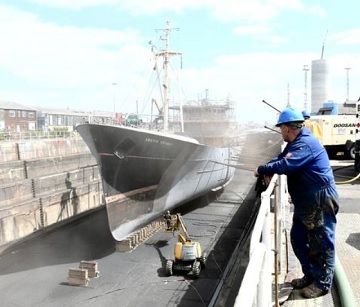
Arctic Corsair and Spurn Lightship: Memories of working and playing hard on Arctic Corsair as restoration progresses
Two of Hull’s cherished ships have had decades-old paint and rust blasted away in the latest stage of a major restoration project which will ultimately see them displayed to the public. The Arctic Corsair and Spurn Lightship are being power-cleaned this week by special tools used to remove old paint, corrosion, and muck clinging to the ships’ hulls. >click to read<
Waking up to find a huge cod alongside him in his bunk was an experience young Pete Forytarz never forgot. – The third generation fisherman, 70, is one of a dwindling band with memories going back to the days when hundreds of boats, big and small, operated out of Hull. He did two trips to the White Sea on board Arctic Corsair back in 1973 for cod and haddock. and now acts as a guide on board on the sidewinder trawler, which is being restored as part of the £30m Hull Maritime project. In dry dock the vessel’s elegant lines are revealed, her slim hull and raked bow. “She is going to look beautiful,” said Pete, his face lighting up. >click to read< 10:46
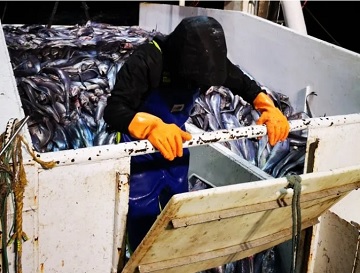
Hundreds of workers flown home to Pacific despite fishing firms’ pleas
Tongan, Samoan and ni-Vanuatu horticulture workers have been redeployed or flown home, to the disappointment of the country’s biggest fishing companies who had asked for help filling hundreds of jobs in their processing plants. Between 200 and 500 workers still had time left on their Recognised Seasonal Employer visas, at the end of fruit-picking season in Nelson and Marlborough. Sealord and Talley’ wrote to the immigration minister asking that workers be given the chance to transfer over to better-paid seafood jobs, to help address a big labour shortage at the start of New Zealand’s lucrative hoki season. >click to read< 09:32






